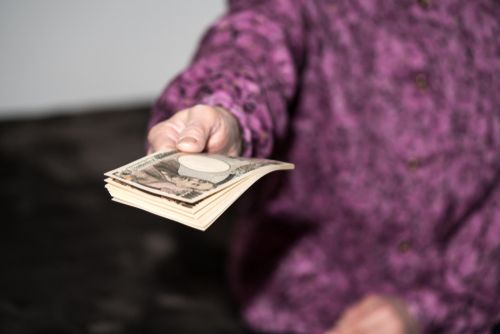 Death can elicit strong emotions: shock, sorrow, anger, guilt, and worry. Whether you’ve just lost a loved one or are planning your own memorial, those emotions can leave you destabilized and unguarded. They’re a natural part of the human experience, but they also increase your risk of getting scammed. Fortunately, you can avoid losing money to funeral fraud by learning about some common industry scams.
Death can elicit strong emotions: shock, sorrow, anger, guilt, and worry. Whether you’ve just lost a loved one or are planning your own memorial, those emotions can leave you destabilized and unguarded. They’re a natural part of the human experience, but they also increase your risk of getting scammed. Fortunately, you can avoid losing money to funeral fraud by learning about some common industry scams.
Death Care: A Multibillion Dollar Industry
Spending patterns may change over time, but people will always die. Deathcare is a lucrative industry, making it rife for fraud. Some facts and figures provided by Statistica help put the situation into perspective:
- Funeral and cemetery services generated an estimated $21 billion during 2019.
- The median cost for a funeral with burial reached $8,755 in 2017.
- Funerals with cremations cost an average of $6,260 in 2017.
- In 2019, 19,177 funeral homes were operating in the United States.
- Around 86% of industry providers are small or family-owned businesses.
Why Scammers Target Their Victims
The death of a loved one can leave you feeling especially vulnerable. If this person passed away without making final arrangements, you’re left scrambling to both prepare and pay for the funeral. Preplanning eliminates many headaches, but you’re still not immune to con artists. While making your own arrangements, you may feel obligated to avoid leaving your family with bills, funeral costs, and unneeded stress. This precarious combination of emotional turmoil and large sudden expenses can make you a prime target for scammers.
Common Types of Funeral Fraud
The National Council on Aging mentions that many consumers are unfamiliar with funeral industry practices and costs. Con artists use this to their advantage, cheating their target out of thousands of dollars. Elderly people are especially vulnerable: The NCOA states that funeral and cemetery fraud is the third most common scam targeting senior citizens.
To help protect consumers, the Federal Trade Commission established the Funeral Rule in 1984. Yet funeral fraudsters still manage to con people out of their money every year. Angi and AARP mention the most common ruses. Prepaid funeral scams can include bloated prices, fake providers, “nickel-and-dimed” extras, misappropriated funds, and even Ponzi schemes in which later customers’ funds pay for earlier customers’ funerals. Dishonest funeral homes may fail to provide transparent pricing information, pressure you into buying unneeded extras, or delay in issuing documentation for what you purchase. Some may insist that you purchase a casket for cremated remains or try to sell expensive “protective caskets,” claiming they’ll preserve the body longer.
Knowledge Is Your Best Defense
Arming yourself with information is an important step in avoiding funeral fraud. As with any other industry, you need to do your homework on each provider and evaluate pricing, customer reviews, reputation, and compliance with licensing requirements. The FBI’s Scams and Safety guide suggests educating yourself on key details such as casket styles and types of service fees. You should also learn about state and federal laws governing the funeral industry. Another AARP Bulletin reveals that funeral homes are required by law to provide you with three price lists:
- All goods and services offered
- Caskets
- Grave liners and outer burial containers
Funeral homes cannot force you to purchase a casket from them, pay extra for buying your casket elsewhere, or pay for embalming if your state doesn’t require it. You should also read all contracts fully and make sure you understand cancellation, refund, and transfer policies before signing.
Protect Yourself and Your Family
Funeral planning can feel complicated and is often fraught with many intense emotions. Scammers use these factors to deceive people and steal their money. By researching your death care options carefully and resisting high-pressure tactics, you can protect yourself against funeral fraud.
Add Your Comment